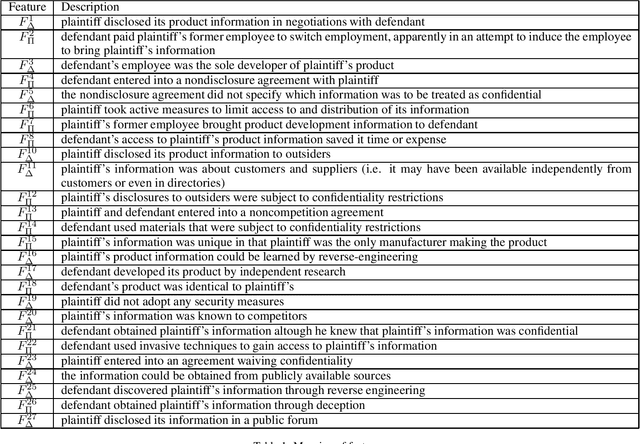Monotonicity and Noise-Tolerance in Case-Based Reasoning with Abstract Argumentation (with Appendix)
Paper and Code
Jul 13, 2021



Recently, abstract argumentation-based models of case-based reasoning ($AA{\text -} CBR$ in short) have been proposed, originally inspired by the legal domain, but also applicable as classifiers in different scenarios. However, the formal properties of $AA{\text -} CBR$ as a reasoning system remain largely unexplored. In this paper, we focus on analysing the non-monotonicity properties of a regular version of $AA{\text -} CBR$ (that we call $AA{\text -} CBR_{\succeq}$). Specifically, we prove that $AA{\text -} CBR_{\succeq}$ is not cautiously monotonic, a property frequently considered desirable in the literature. We then define a variation of $AA{\text -} CBR_{\succeq}$ which is cautiously monotonic. Further, we prove that such variation is equivalent to using $AA{\text -} CBR_{\succeq}$ with a restricted casebase consisting of all "surprising" and "sufficient" cases in the original casebase. As a by-product, we prove that this variation of $AA{\text -} CBR_{\succeq}$ is cumulative, rationally monotonic, and empowers a principled treatment of noise in "incoherent" casebases. Finally, we illustrate $AA{\text -} CBR$ and cautious monotonicity questions on a case study on the U.S. Trade Secrets domain, a legal casebase.
 Add to Chrome
Add to Chrome Add to Firefox
Add to Firefox Add to Edge
Add to Edge